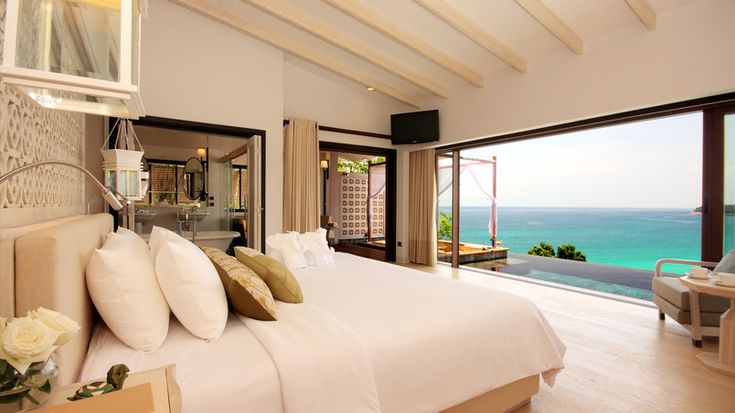
A Home Away from Home
The essence of hotel travel lies in comfort and convenience. Whether you’re a business traveler rushing between meetings or a backpacker chasing sunsets, a hotel serves as a sanctuary — a place to relax, recharge, and reflect. For many, the hotel room becomes a temporary home, offering familiarity in unfamiliar surroundings.
Hotels today cater to diverse needs: boutique hotels for those seeking charm and personality, luxury resorts for the indulgent traveler, business hotels equipped with high-speed Wi-Fi and conference rooms, and budget accommodations for those looking to stretch their rupee or dollar. The choice of hotel can significantly influence the quality of a trip, and smart travelers know this well.
The Experience Beyond the Room
Modern hotel travel is no longer about just clean sheets and a warm bed. Travelers are now looking for experiences. From rooftop pools overlooking city skylines to farm-to-table restaurants serving local delicacies, hotels are curating memories. Wellness travelers might choose a resort with yoga classes, spas, and organic meals, while culture enthusiasts may book heritage hotels that offer traditional dance shows or local craft workshops.
Even the architecture and design of hotels have evolved. Travelers often pick hotels for their aesthetics — be it a minimalistic, Scandinavian-inspired room or a vibrant, art-filled lobby. Instagram-worthy interiors have become a draw, turning hotels into photo ops as much as places to stay.
Hospitality: The Human Touch
Technology has made travel easier, but the human element remains irreplaceable. The smile of a receptionist after a long journey, the concierge offering local recommendations, or the housekeeping staff leaving a kind note — these small touches define hospitality.
Good hotel service can transform a regular stay into a memorable one. Personalized experiences — remembering a guest’s name, favorite drink, or preferred room type — build loyalty. Some hotels even offer pillow menus, scented room options, and customized itineraries based on guest interests. These aren’t just luxuries but reflections of genuine care and attention to detail.
Choosing the Right Hotel

With thousands of options available online, choosing the right hotel can be overwhelming. Here are a few tips to make the process smoother:
- Location Matters: Consider proximity to landmarks, transport, or the reason for your visit (like a business district or beach).
- Read Reviews: Sites like TripAdvisor, Google Reviews, or Booking.com provide guest experiences that offer insight beyond glossy photos.
- Check Amenities: Ensure it has what you need — Wi-Fi, breakfast, gym, parking, etc.
- Compare Prices: Use aggregator sites, but always check the hotel’s official website for exclusive deals or discounts.
- Look for Flexible Policies: Especially post-pandemic, it’s safer to book accommodations that allow free cancellation or rescheduling.
The Rise of Sustainable Hotel Travel
Travelers are becoming increasingly eco-conscious. The hotel industry has responded with green practices — energy-efficient lighting, water conservation, biodegradable toiletries, and waste management. Some properties have gone further, supporting local communities, sourcing food locally, and reducing single-use plastics.
Eco-lodges and green-certified hotels are gaining popularity among travelers who want to leave a lighter footprint. Choosing such accommodations is a way of supporting responsible tourism and ensuring that travel remains a force for good.
Hotel Travel in the Digital Age
Technology has transformed the way we book, experience, and review hotels. Today, a few taps on a phone can book a hotel room in another country within minutes. Virtual tours let us explore rooms before arrival. AI-powered chatbots answer queries instantly. Digital check-ins, smart room controls, and contactless payments are becoming standard, especially post-COVID.
However, the digital revolution doesn’t replace the personal touch. The best hotel experiences combine efficiency with warmth — tech-savvy yet human-centric.
Hotels as Destinations
Some hotels are so unique that they become destinations themselves. From underwater suites in the Maldives to ice hotels in Sweden, from treehouses in the Amazon to palaces in Rajasthan — these extraordinary accommodations offer once-in-a-lifetime experiences. Travelers today are booking hotels not just based on convenience but for the memories they promise.
For instance, staying in a century-old haveli in India immerses you in royal history. Booking a vineyard resort in Tuscany lets you wake up to grapevines and wine tastings. Hotel travel is now an extension of your adventure.
Blending Work and Leisure: The “Bleisure” Trend
The lines between work and vacation are blurring. With remote work becoming the norm, travelers are extending business trips to explore cities or working from hotels in exotic locations. This has given rise to the “bleisure” trend — a blend of business and leisure.
Hotels are adapting by offering co-working spaces, longer-stay discounts, and upgraded business amenities. Some even provide curated experiences for workcationers — like hiking trips, art classes, or cooking sessions after working hours.
Final Thoughts: Hotel Travel as a Lifestyle
Hotel travel is more than just a functional part of a trip. It’s a lifestyle, a philosophy of how we choose to experience the world. The hotel you pick can shape your perception of a place — making it warmer, richer, and more personal.
Whether you’re traveling across continents or just a few hours away, the right hotel can offer not only comfort but a deep sense of connection — to culture, to people, and to yourself.
So the next time you plan a journey, think of hotel travel not as an afterthought, but as part of the adventure. Because sometimes, the place you stay becomes as unforgettable as the place you go.
